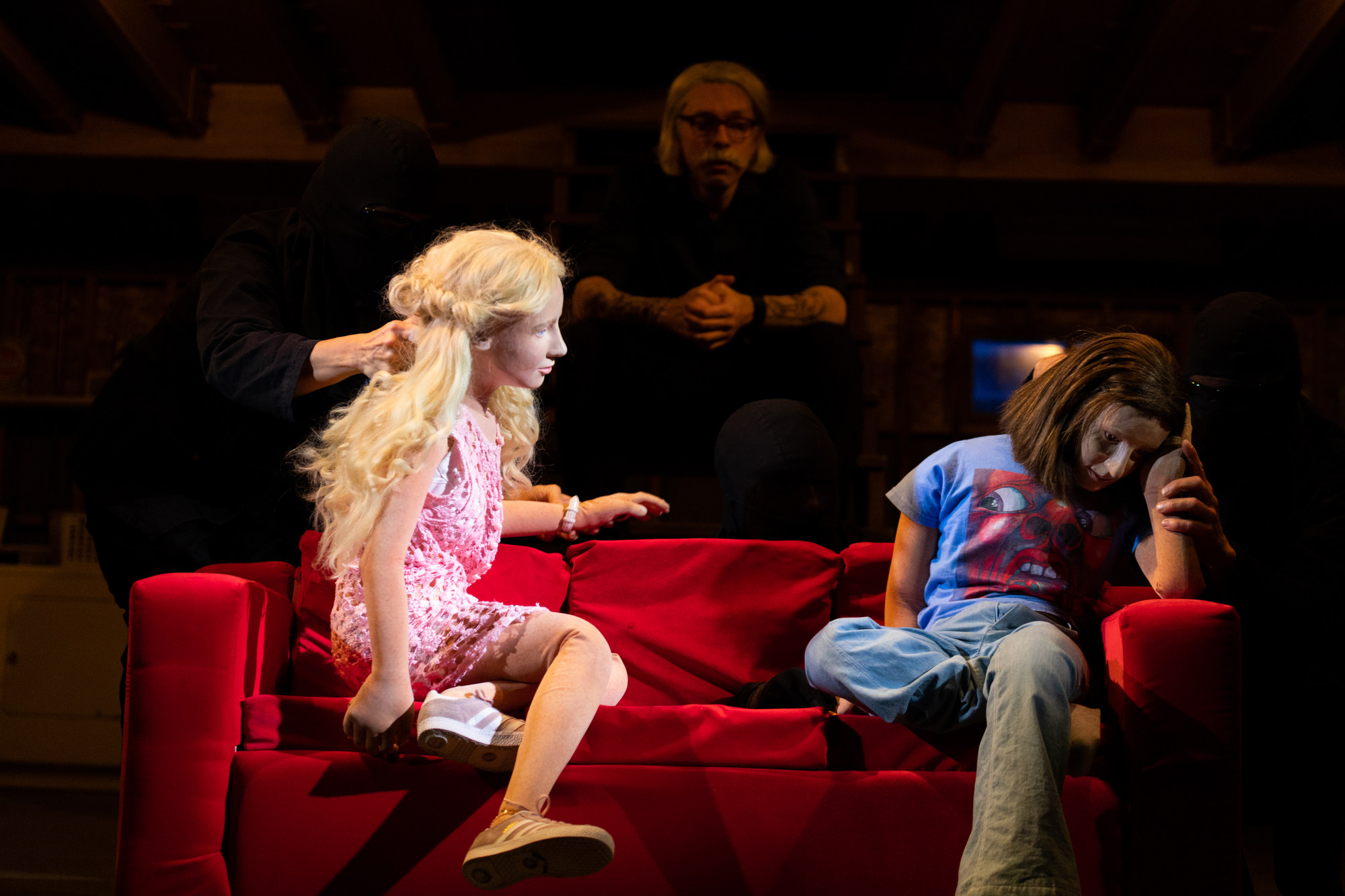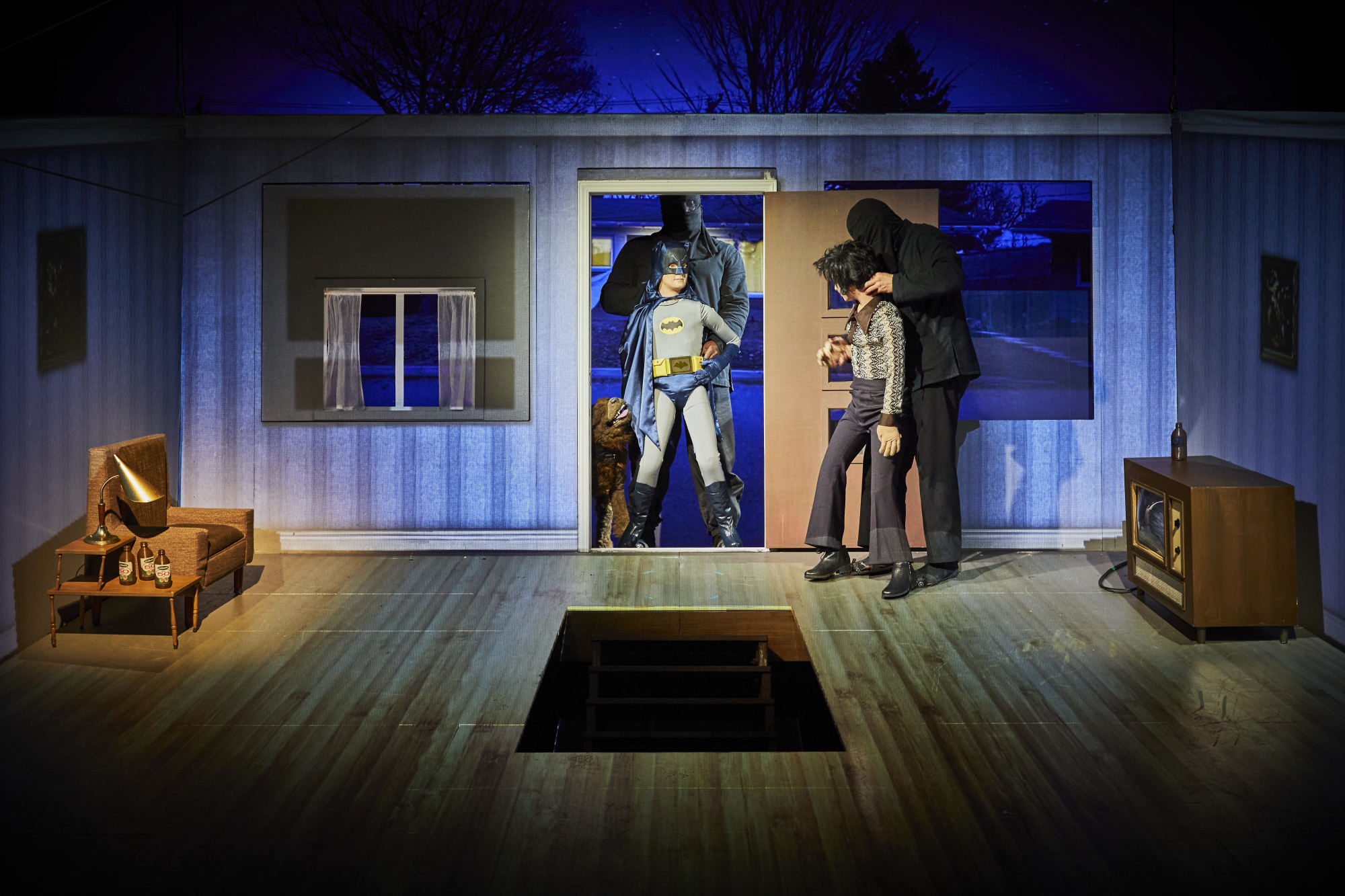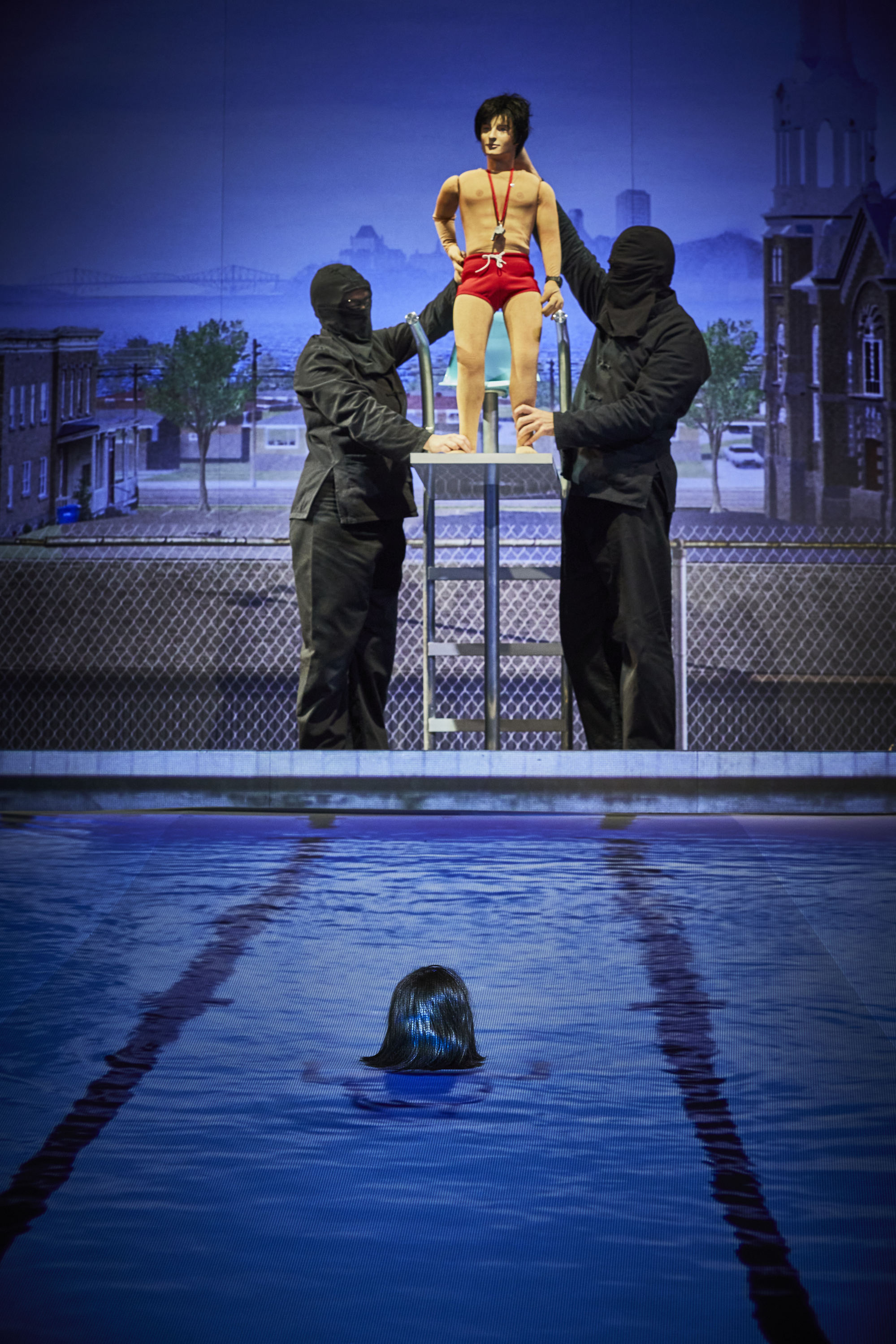Canadian director Robert Lepage entranced audiences in Hong Kong with his autobiographical 887 five years ago, a solo performance aided by his masterful use of toy-size props.
For this year’s Hong Kong Arts Festival, he and his group, Ex Machina, brought something a bit different. Courville is loosely based on memories of his youth and told with life-size puppets inspired by the Japanese bunraku tradition.
Set in 1975, it centres on 17-year-old Simon and his small world in Courville, a town about to be absorbed into Quebec City and which, after 1976, would no longer exist.

But Simon is not Lepage; he is one of about 10 different characters that the only actor on stage, Olivier Normand, brings to life mainly just with his voice, and by working seamlessly with three puppeteers unobtrusively covered in black.
The slow-paced and fragmented narration – partly the result of frequent changes of scene and repositioning of the puppets – makes it all the more dramatic when the pieces of the puzzle finally fall into place.
Heavy metal meets orchestral sound in Bright & Black, with mixed results
Heavy metal meets orchestral sound in Bright & Black, with mixed results
Simon’s father has died and he lives in the basement of the house shared with his mother, who has rented out the only spare room to an alcoholic “uncle” who he detests.
He has a best friend, Sophie, who has romantic feelings for him, while he himself lusts after a muscular and handsome lifeguard at the public pool who is a former classmate.
Lepage explains in the programme notes why he decided to use puppets rather than human actors. It creates the intimacy of a solo show, and avoids the embarrassment of getting teenage actors to act out intimate physical contact or, in one scene, the self-exploratory aspect of sexual awakening.
With the use of puppets, Lepage is also able to create effects that cannot be done in normal theatre. For example, when Simon is fighting with his uncle in the basement, the puppet is suddenly replaced by the actor Normand, which amplifies the emotional intensity and pathos of that critical moment.

One of a number of scenes which brought together unrelated strands of the story would have been quite challenging for human actors: Simon’s doctor carrying out the autopsy of Sophie after she has drowned herself.
Those who expected a puppet show to be lighthearted were in for a surprise. This is a story of just about every kind of teenage trauma you can think of.
Teenage self-absorption rarely interacts with the big social and political events referenced as subtext throughout the play: the Montreal Summer Olympics of 1976, and the general election that same year in which the pro-independence Parti Québécois won for the first time.
Le Corsaire by La Scala ballet: well danced in places, but uneven
Le Corsaire by La Scala ballet: well danced in places, but uneven
This backdrop does, though, create a sense of momentous changes and uncertainty that matches Simon’s state of mind.
The other backdrop – Lepage and Ex Machina’s famously dazzling scenography – frequently drew gasps of amazement.
Simon’s furnished basement was a collapsible wooden box with a top cover lowered smoothly and noiselessly to create an additional stage area. The clever use of digital projections and props transforms it into about 20 different places: the public pool with the sexy lifeguard looking on, or the riverside boulders where Simon and Sophie hang out, for example.

One minor quibble: Mathieu, the lifeguard, supposedly has trouble finding work outside Montreal because his English is not good enough. But in what was the premiere of the play’s English version (the original was in French), Mathieu spoke fluent English throughout.
“Robert Lepage x Ex Machina – Courville”, 52nd Hong Kong Arts Festival, Hong Kong Academy of Performing Arts Lyric Theatre. Reviewed: March 14.

